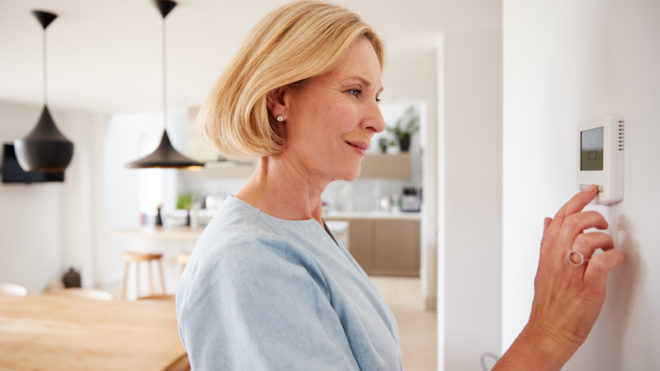Homeownership is a great accomplishment you can be proud of. In addition to making your mortgage payments on time, you also have to keep up with your HVAC maintenance. It’s not the most glamorous part of homeownership, but it needs to be done routinely to ensure your home is running at peak efficiency.
HVAC (heating, ventilation, and air conditioning) is responsible for providing optimal airflow and energy efficiency. It’s important to have a proactive and preventative approach to your HVAC maintenance so you’re ready any time a problem arises. For HVAC success, it’s crucial to stay on top of your maintenance year after year, including setting up an annual plan.
Here are some tips and tricks to help you become a smart homeowner and ensure your HVAC system works correctly.
Before setting up your HVAC plan, you should understand the types of problems that can occur so you know the best way to tackle them.
1. Leaks
All HVAC lines can develop leaks, which cause your system to run harder than it should and can lead to replacing some components. Monitor leaks from your refrigerant lines and leaks from the A/C condensate line and heat exchanger.
2. Corrosion
Wires + moisture = corrosion. It can happen to any wire in your HVAC system and causes your heating or cooling system to turn on and off on its own. This also forces your system to work harder and could lead to a break.
3. Dirt or Debris
Your HVAC system components need to be free of dirt or debris at all times in order to function correctly. Dirty air filters allow dust and allergens to enter your home, reducing the airflow and clogging the system.
Now that we have discussed the various HVAC issues, you will have a better understanding of the tasks you should be performing around your home. Here is a timeline list of tasks to do at certain points in the year.
Right Now
- Ensure the area around the outdoor and indoor components of the HVAC system are completely free of dirt or debris.
- Confirm that there are at least two feet of clear space around the HVAC system.
- Buy high-efficiency air filters if you don’t have them already. They reduce the amount of dust blown through the heating system.
Once A Month
- Inspect your air conditioner refrigerant lines for leaks. These two copper lines connect your outdoor air conditioner to the HVAC system’s indoor evaporator coil.
- Replace your air filter every 30-90 days. Depending on your lifestyle, pets, children, and term of residency, this could be more or less often.
Once A Season
- In the fall, turn the water back on and replace the humidifier filter.
- In the spring, clean the evaporator coil and evaporator drain.
Once A Year
- Replace the batteries in all the carbon monoxide detectors around your home.
- Lubricate your HVAC motor and replace the fan if it’s not functioning correctly.
- Clean the drain line with bleach to prevent the build-up of mold or mildew.
- Check your outdoor A/C unit to ensure it’s standing on level ground.
Following this list at the correct times will help you prolong the life of your HVAC system and keep it running right for a long while. The typical life expectancy of HVAC systems in South Florida is 8-10 years, but with preventative maintenance, you can make yours last well past the 10-year mark.



